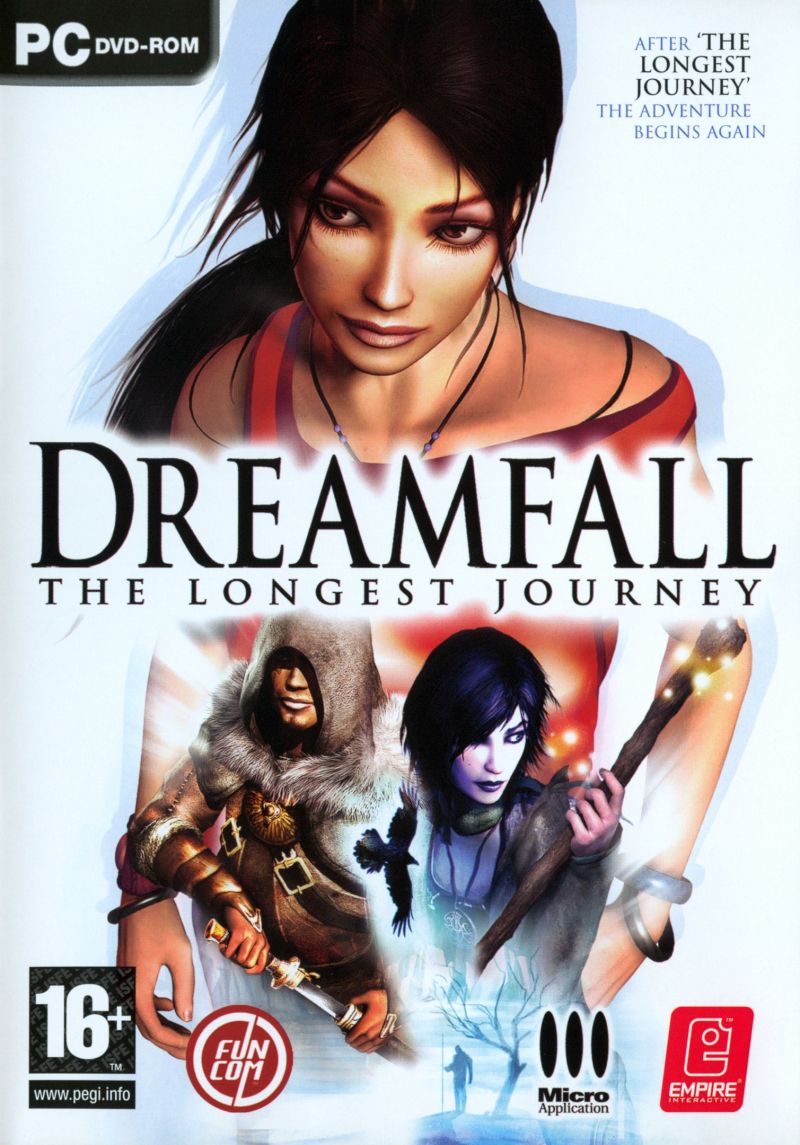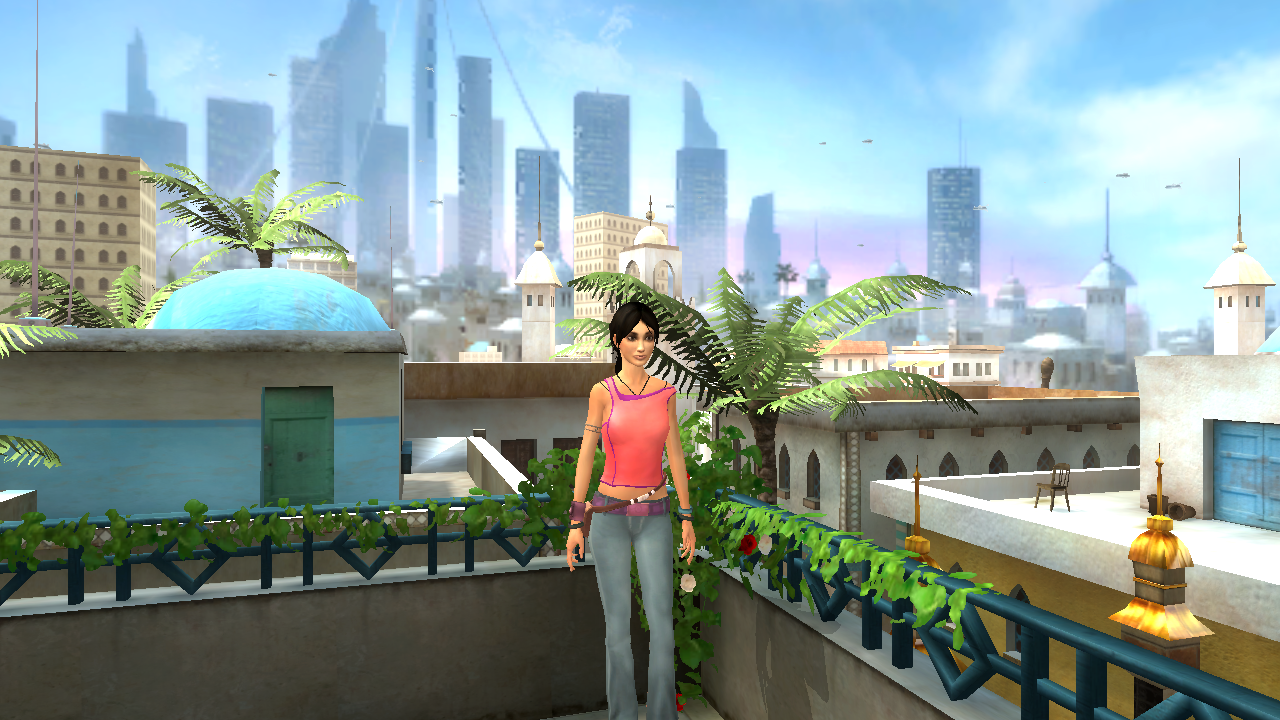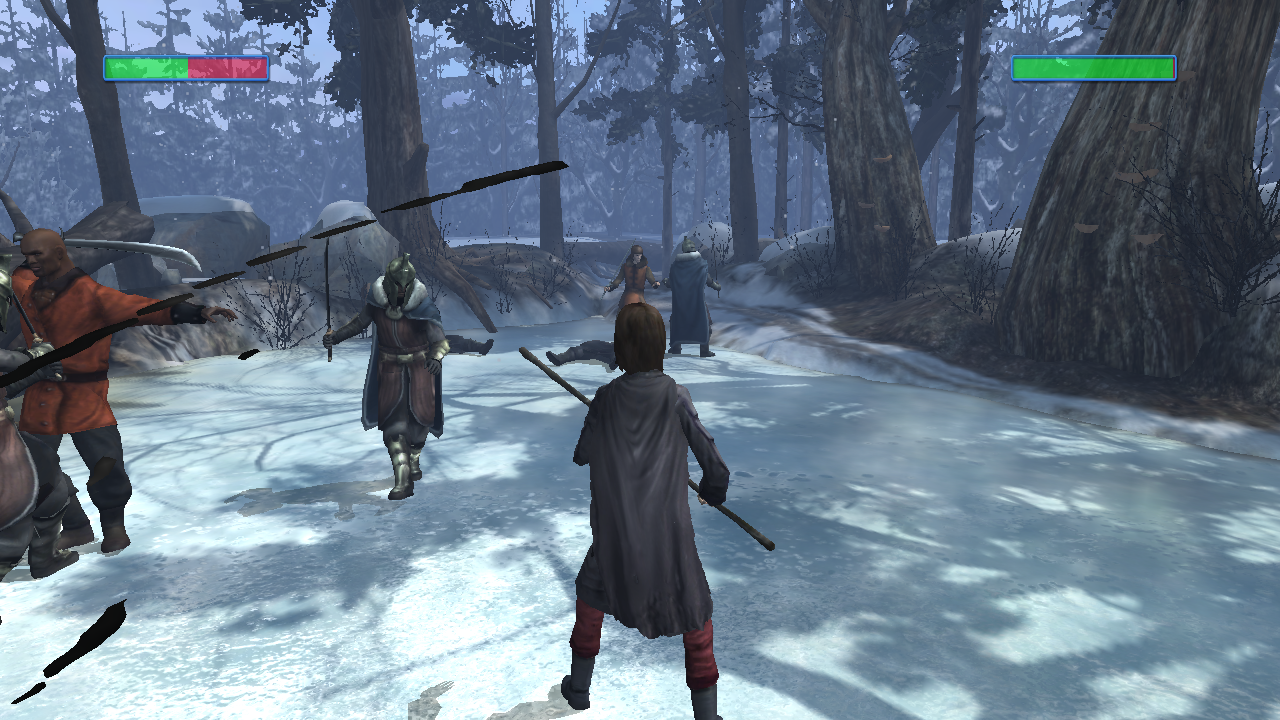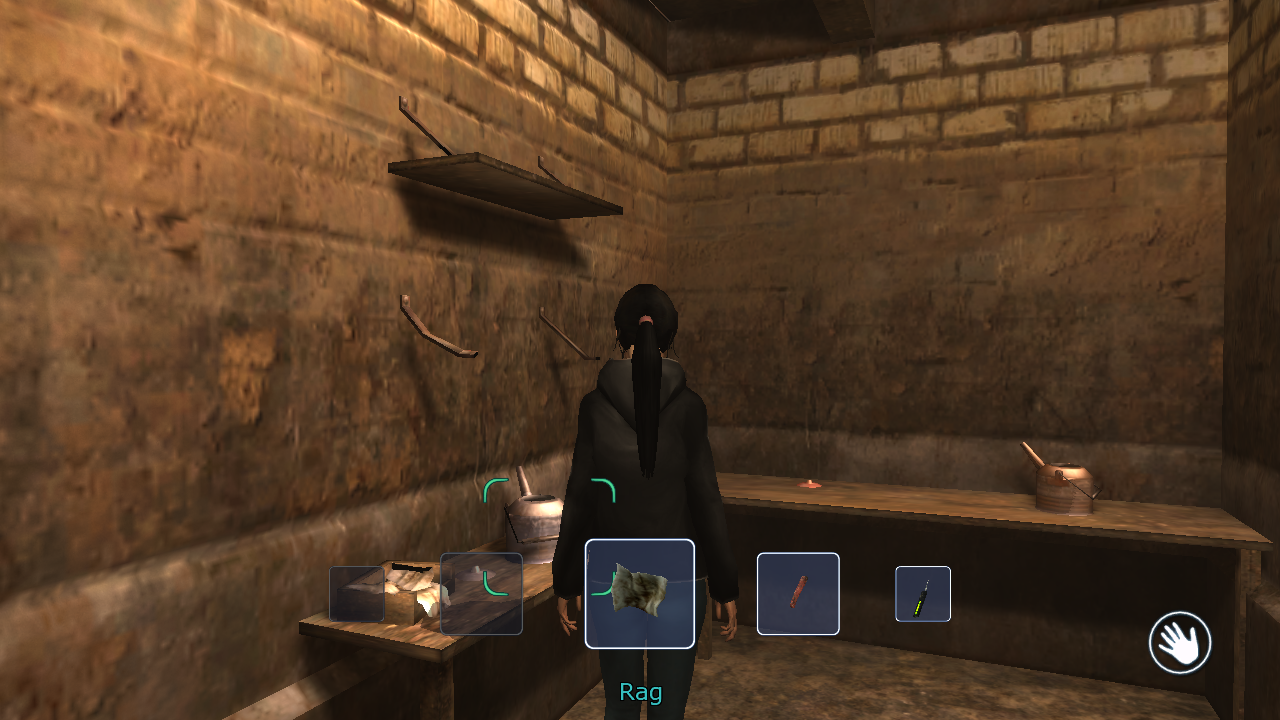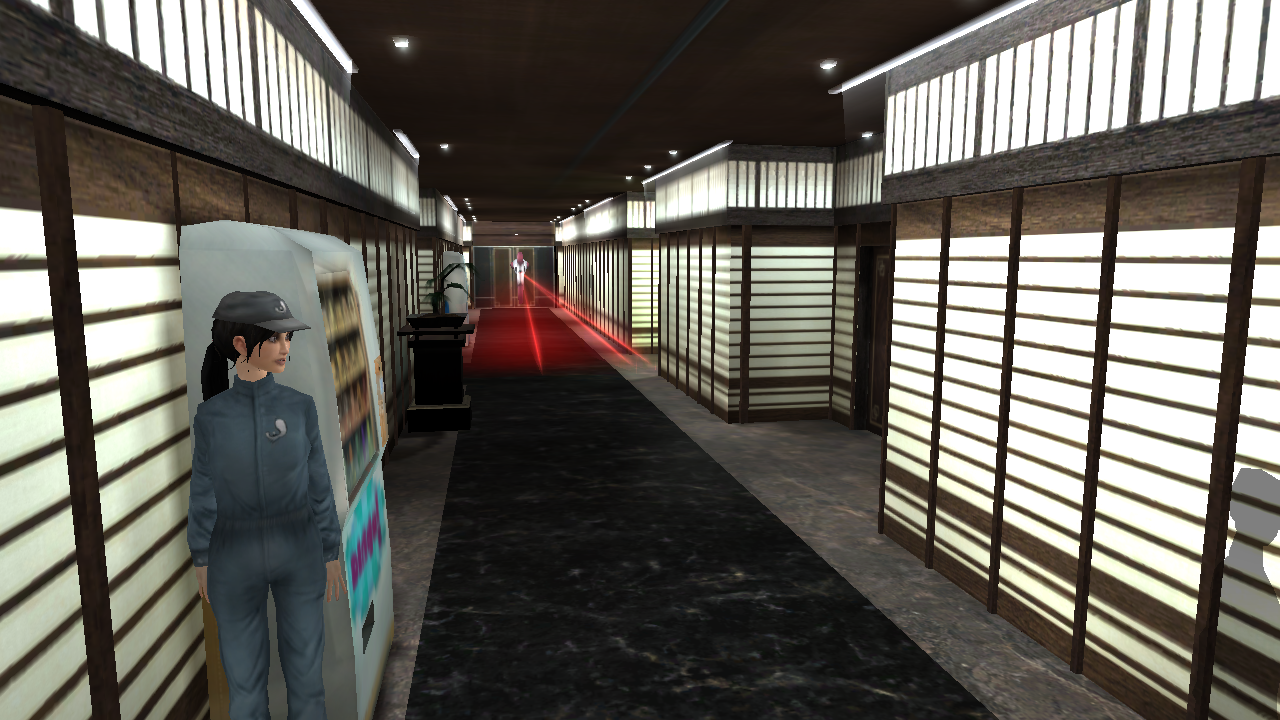DREAMFALL: THE LONGEST JOURNEY (PC)
There are moments when you’re moseying around the sun-drenched, futuristic chic of Casablanca, wondering quite how it is that Dreamfall struggles to engage for so long. It has an awful lot going for it: pristine visuals, adventurous and imaginative settings, high production values and a narrative that’s clearly had a lot invested in it. Surface detail is only half the story, however, as The Longest Journey proves an apt name for a game that drifts along listlessly for too long, rather squandering its considerable potential.
A narrative-lead adventure, Dreamfall centres around Zoë Castillo, a poor little rich kid who spends the first few hours moaning about how listless her days of easy comfort have become. Despite the talents others are keen to claim she possesses, and the opportunities at her disposal, she has lost direction and motivation. However, when her friend Reza goes missing, it gives Zoë something to look into. A reason to get up in the morning, if you will. Thus making like a slightly delusional and considerably underprepared Lara Croft, she goes on a jet-setting, realm-hopping journey of danger and espionage, to find him.
Zoe gets to visit some eye-popping locations, with futuristic Casablanca perhaps the most impressive of all
Dreamfall’s at its most effective when you’re free to explore its pretty surrounds. Be it the arresting, futuristic cultural fusion that is Casablanca, the sci-fi megalopolis of Japan, the foreboding industrial abandonment of St. Petersburg, or rundown slums that emphasise the startling rate of human disenfranchisement. Culture is faster, more disposable and more invasive than ever, as huge companies assume a more active societal role than governments. Science versus magic, and affluence at the expense of the freedom to question. Collectively, these musings help make for an evocative and thought-provoking journey. To throw some confusion into the mix, there’s a whole traditional fantasy, magic ‘n’ taverns parallel world in here too, complete with its own cast of protagonists.
Gameplay consists chiefly of observation, exploration and light puzzling. In this regard, it fares quite well. Granted, some of the hacking puzzles can be a little tedious, but finding clues, coaxing information from NPCs and combining items makes for solid adventuring fare. Combat rarely consists of more than one or two enemies, which is fortunate, as scraps prove a bit sluggish. Despite a lock-on feature, it’s also quite clumsy. Sword fights are infrequent and on the whole, feel an uncomfortable fit, as if shoehorned in.
Gameplay consists chiefly of observation, exploration and light puzzling. In this regard, it fares quite well. Granted, some of the hacking puzzles can be a little tedious, but finding clues, coaxing information from NPCs and combining items makes for solid adventuring fare. Combat rarely consists of more than one or two enemies, which is fortunate, as scraps prove a bit sluggish. Despite a lock-on feature, it’s also quite clumsy. Sword fights are infrequent and on the whole, feel an uncomfortable fit, as if shoehorned in.
Elsewhere, there are some surprisingly effective sneaking sections, despite it following the questionable penchant for 2000s adventures to dump in unnecessary stealth, seemingly without good reason. There’s a bit of variety to them, be it sneaking around a house to bypass a sentry robot, avoiding an ogre-like creature within a cavern or finding nooks to evade soldiers patrolling a laboratory. Dreamfall judges the balance well and doesn’t overplay its hand; they’re not too long, or too familiar.
The story, which is predominant amongst the game’s 15-hour runtime, is a mixed bag. Events take a long time to really catch alight, as bland voicing, over-expansive storytelling and a heavy emphasis on backtracking for items and advice rather dampen your progress, at times. Things kick belatedly into life with the merging of the three playable protagonists’ (Zoë, April and Kian) stories, with perhaps the best sequence coming late on with a prison break that switches back and forth between characters. Frustratingly, just as Dreamfall starts to capture the imagination, it ends. The finale proves as sudden as the opening is lethargic; there’s no meaningful attempt at closure, with the whole scenario (and the fate of nearly the entire cast) left up in the air. Not in a cliffhanger kind of way, there's just a general lack of resolution.
The story, which is predominant amongst the game’s 15-hour runtime, is a mixed bag. Events take a long time to really catch alight, as bland voicing, over-expansive storytelling and a heavy emphasis on backtracking for items and advice rather dampen your progress, at times. Things kick belatedly into life with the merging of the three playable protagonists’ (Zoë, April and Kian) stories, with perhaps the best sequence coming late on with a prison break that switches back and forth between characters. Frustratingly, just as Dreamfall starts to capture the imagination, it ends. The finale proves as sudden as the opening is lethargic; there’s no meaningful attempt at closure, with the whole scenario (and the fate of nearly the entire cast) left up in the air. Not in a cliffhanger kind of way, there's just a general lack of resolution.
The experience is typified by scattergun writing and voicing. There’s a bit of everything here, from the accomplished to the downright awful, and that’s just the main characters. Zoë exhibits the emotional range of a goldfish, leading to a catalogue of oddly flat conversations and stilted observations. April Ryan, for all her world-saving credentials, sounds like a harassed geography teacher who doesn’t want to be a part of what’s unfolding. Tech-wiz Damian is more convincing however and Crow, a talking bird, livens things up with sparky and amusing dialogue, though he appears only late on. The game has a likeable streak of humour, most notably in the WATIcorp personal robot museum, where you’ll find several luridly amusing displays.
Dreamfall: The Longest Journey has a lot going for it. Its adventuring offers a nice change of pace, with just enough in the way of variety and challenge that it may capture the interests of fans. The story takes a long time to get going though and the abruptness of its ending will doubtless gall some, as you’ll need to persevere for a few hours to find the best of it. If you can put up with these gripes, as well as some duff voicing, you’ll find an unusual and imaginative take on the genre and one that may appeal to those less enthused by the loot ‘n’ level-grinding more commonly associated with PC fantasy titles of the time.
Dreamfall: The Longest Journey has a lot going for it. Its adventuring offers a nice change of pace, with just enough in the way of variety and challenge that it may capture the interests of fans. The story takes a long time to get going though and the abruptness of its ending will doubtless gall some, as you’ll need to persevere for a few hours to find the best of it. If you can put up with these gripes, as well as some duff voicing, you’ll find an unusual and imaginative take on the genre and one that may appeal to those less enthused by the loot ‘n’ level-grinding more commonly associated with PC fantasy titles of the time.
|
|
VERDICT
"The story takes a long time to get going and the abruptness of its ending will doubtless gall some. It has its flaws, but Dreamfall makes for an imaginative fantasy adventure that appeals because it's different from the norm" OVERALL: 6/10 |
